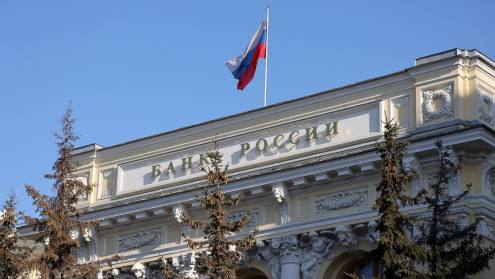The economic crisis has delivered Hungary's banks a sharp shock. But, unlike former prime minister Ferenc Gyurcsány, deposed in April 2009 for his handling of the crisis, the banks look capable of bouncing back. The National Bank of Hungary, which has just produced its report on Hungary's financial stability, says that the banks "should have adequate capital to absorb losses from the economic downturn". It also takes comfort from capital adequacy ratios of about 11%.
The other side of the equation is a slowdown in lending and a deterioration in the quality of the loan portfolio, together with a sharp weakening of the exchange rate. The central bank expects profitability to decrease sharply and capital adequacy to take a hit.
Gabor Erdos, a financial services partner in law firm Wolf Theiss in Budapest, says: "The banks in Hungary are suffering. They are not really lending and they have fired many employees."
He points out how many loans for retail schemes have been stopped before completion. "Real estate, both retail and commercial, has collapsed and many developers have stopped projects in mid-term. Banks are refusing to finance projects because they cannot expect any income," he says.
Some of the harshest critics of the Hungarian banks have been the rating agencies. Moody's has taken a negative stance on the economy, and at the end of March downgraded long-term foreign currency ratings of eight Hungarian banks, including OTP Bank, CIB Bank, MKB Bank and Erste.
Rating agency fears
However, Erste's co-head of the CEE Macro/Fixed Income research, Juraj Kotian, says the rating agencies' fears regarding signs of liquidity or solvency problems in the financial sector seem exaggerated. "The new liquidity tools introduced by the Central Bank - especially the €5bn swap facility - have decreased tensions on the foreign exchange swap market and improved the overall situation, compared to October 2008."
Central bank economist Peter Tabak foresees a fall in bank profits nevertheless. With gross domestic product expected to contract by at least 3.5%, he expects pretax profit for the Hungarian banks will fall by a third from Ft350bn ($1.62bn) in 2008 to between Ft100bn and Ft200bn this year. The bank sector will remain profitable, says Mr Tabak, because it has already been adjusting to the deteriorating economic environment.
This is despite the fact that loan-to-deposit ratios averaging 140% are relatively high, and banks have extended a large number of foreign currency loans to unhedged, mostly retail, borrowers. These amount to 50% to 60% of the overall loan stock and are mostly denominated in Swiss francs.
Mr Tabak argues that they will not pose a risk to bank sector stability because the mortgages' loan-to-value ratio is rarely more than 35%. The bank says that most borrowers live in a mortgaged property (with limited buy-to-let activity) so their propensity to pay the mortgage is high. The share of the shadow economy is high, so household income is often higher than people claim.
Dangers posed
Mr Erdos is not so sanguine about the incipient dangers posed by the scale of foreign currency loans. He sees the collapse in the currency, from Ft240 to the euro to Ft300 over the past six months, posing serious problems to domestic borrowers. "Lending to Hungarians for buying real estate has been substantially in foreign currency. If you had a foreign currency loan on your flat, you will be paying 30% more. As a result, most banks have decided to cease foreign currency lending and they have more bad debt."
Mr Erdos says banks have yet to draw on a Ft600bn recapitalisation arrangement put in place by the Hungarian government. This is available to banks with local headquarters, rather than to foreign banks. Further government help to the banks includes a Lt170bn loan via the Hungarian Development Bank to boost lending by local banks, a Lt30bn loan to Land Credit and Mortgage Bank and Lt400bn to OTP bank. Mr Erdos says the loans were given under normal market conditions rather than under the banking rescue scheme, so they have "no EU competition implications".
This should help the banks navigate loan quality deterioration and funding shortfalls over the next year, but with the opposition pushing for early elections, prime minister Gordon Bajnai may not have the political support to implement further measures.












